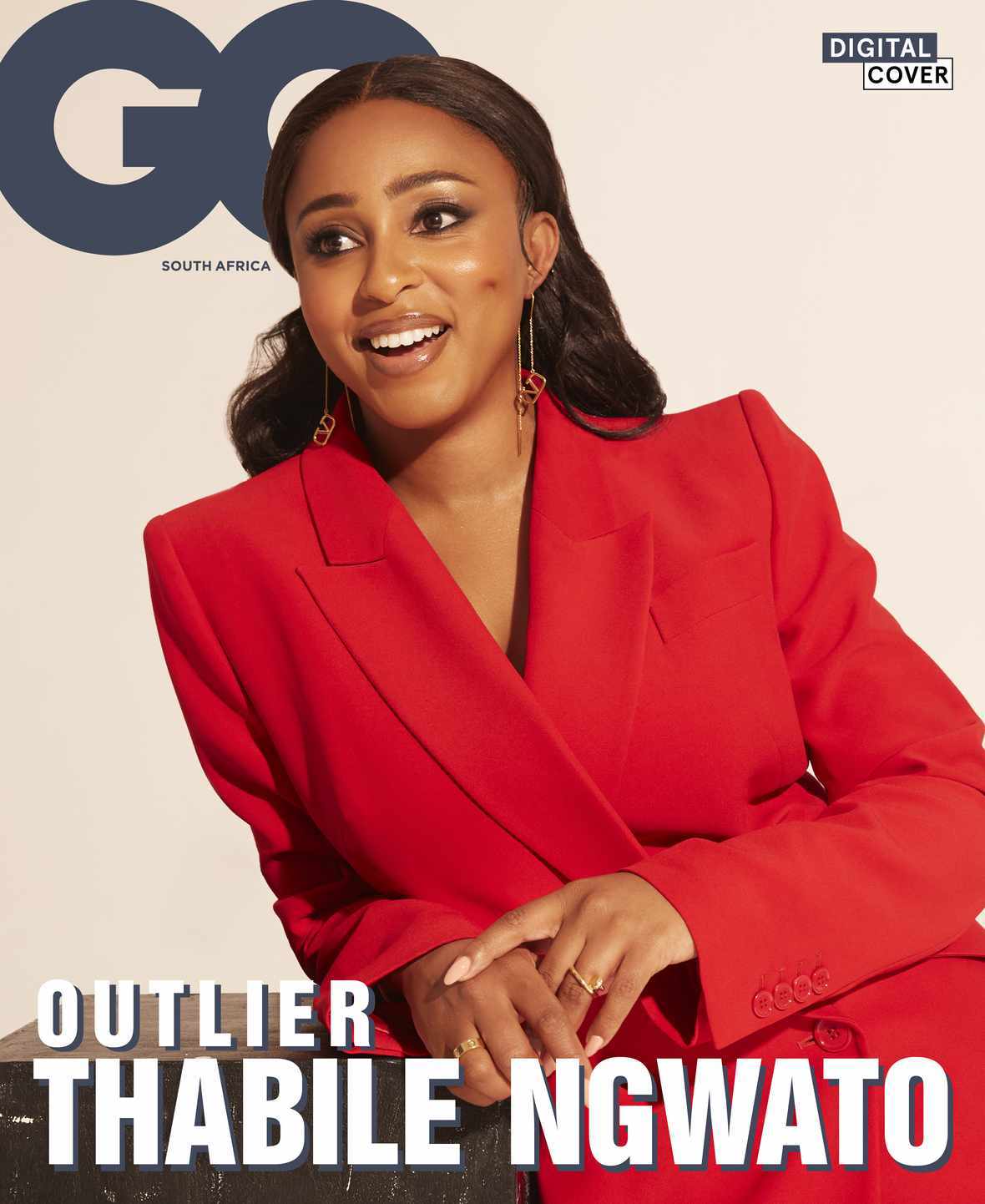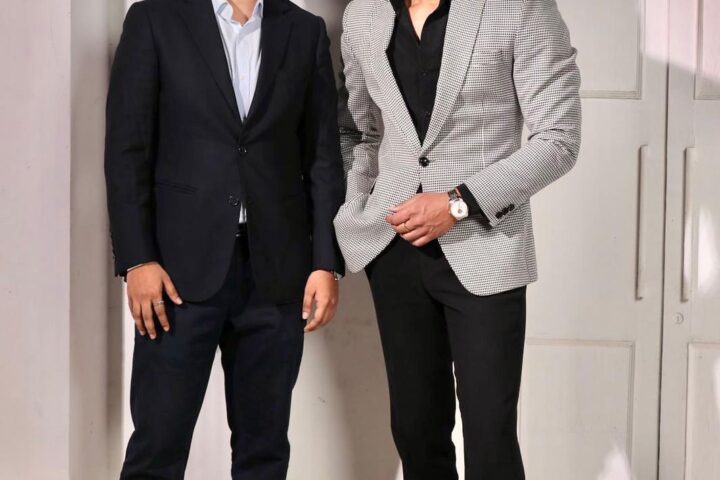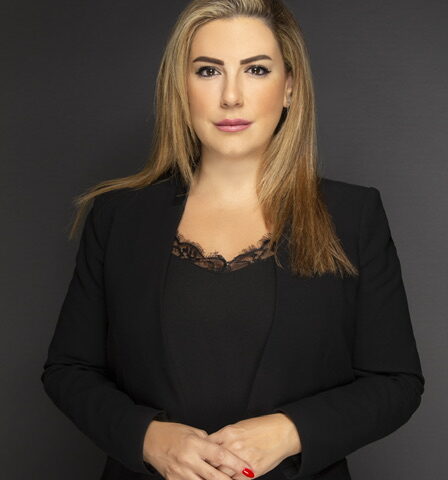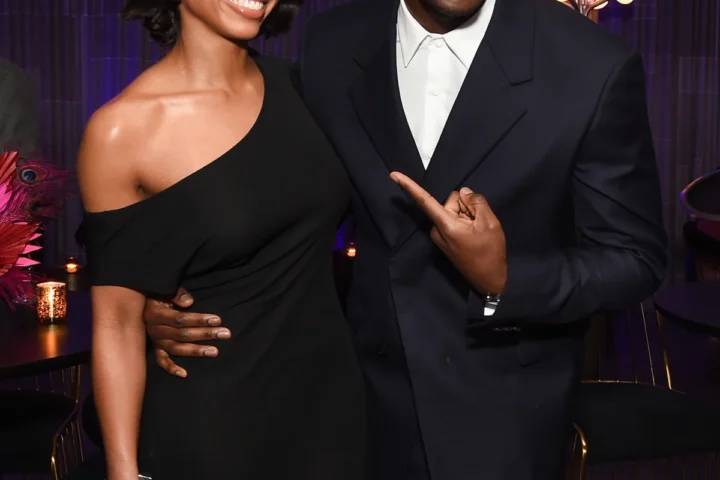Thabile Ngwato is adamant about breaking down obstacles.
She discusses her goals for her work, her love of entrepreneurship and encouraging women in an interview with GQ.
Entrepreneur and public figure Speaking with Thabile Ngwato, you can see she is a lady on a mission with a fierce determination to make sure nothing gets in her way.
She worked in broadcasting for approximately ten years, holding the positions of reporter, producer, and anchor on television and radio.
She explains that her involvement in debate and public speaking as a young girl was a major factor in her decision to pursue a career in media.
And while doing well in those environments helped her realise her potential, it didn’t immediately pique her interest in broadcast media.
“In 2011, I was given the chance to start working in radio, which sparked my curiosity in the potential of the broadcasting industry. I could write, produce, read the news, and learn about the different sides of broadcasting while specialising in radio while working in a tiny newsroom.
“I later switched to television since at the time it piqued my interest more, but I’m glad I started in radio. I always remark that individuals who began their careers in radio are the finest on television because it teaches you so much without the strain of having millions of people watching you, adds Ngwato.
I didn’t start out on air right away because I was still very young; instead, I worked as a producer, then a bulletin editor, and then, about a year later, I had the chance to be on air. I stayed there for over five years until deciding it was time to pursue my entrepreneurial passion. Since I already had experience, it seemed reasonable to move into the business side of the media and broadcasting industry.
preserving a vision Ngwato’s action inspired her to create Newzroom Afrika, the fastest-growing, independently owned news channel in Africa, in 2019. It was established by Ngwato and Thokozani Nkosi and will turn four in May. She calls the last three years turbulent but wonderful.
Launching anything is a difficult task, and channels typically have three years to prepare between the time they sign the contract and the time they go on air.
“We wanted to make sure we were up and running in time for the 2019 general election, so we basically had five months to launch our channel, create a team, get all the tech broadcast systems together, and then go on air. And that was a wise decision. It was a terrific opportunity for us to take off that we debuted at a point in time when viewers were interested in news.
“We have experienced great growth and have taken market share from the other two major local news networks in South Africa. This has helped us as a new player and has also improved the industry overall, according to her.
“As we all know, the previous ten years have been extremely difficult for the broadcasting industry. The newsrooms have changed and gone through retrenchments.
However, one of our main objectives as a company that essentially exemplifies what transformation may look like in areas that were formerly held exclusively by the minority in our nation is to open up prospects for growth and employment.
She continues by saying that the channel still has a long way to go before realising its goal of becoming the premier source of news and information in Africa.
With its primary target in South Africa, Newzroom Afrika currently broadcasts in 52 nations, including those of the Southern African Development Community (SADC).
Ngwato and her coworkers will look into ways to extend across the continent to markets where their brand is unfamiliar over the ensuing couple of years.
Since the channel’s inception, we have had the same goals for it. We are absolutely aware that we are creating a news platform for the future. The Ngwato Nkosi Group and its expanded aim of being a news and entertainment company of the future are what we are now exposing to the public.
We are beginning to introduce new initiatives across genres, like our Movie Room on DStv 113. Yes, we began as a news channel, and that will always be our foundation; it won’t change. However, over the next few years, we plan to begin exposing the rest of our business.
When asked how the broadcasting industry has evolved over time, she responds that the growth of digital has put a lot of pressure on the sector to adapt.
“With audiences getting younger and using more media at once, people have had to think of new ways to stay relevant. We don’t watch as much television as we once did.
“However, I believe that the African continent, and especially South Africa in particular, still has a long way to go before it fully embraces digital technology as did Americans and Europeans, but change is afoot. How can we improve and become more relevant is a question we ask ourselves frequently.
She claims that having a talent-diverse staff is essential to maintaining engaging material and narrative in the very dynamic and constantly changing broadcasting landscape.
“I’ve learned that it’s important to blend levels of expertise, both from studying talent and from my own experiences working behind the scenes. The expansion of any firm, especially broadcasting, depends on having it.
“We carefully considered having that blend both on air and in the background. Being a new platform makes it difficult to attract people, but we had a wonderful vision that we were very clear about communicating when we were hiring.
It’s crucial to surround yourself, your company, and your brand with supporters of your vision because they’ll stick with you when you need to expand your reach or when things aren’t going well, which, fortunately, has happened to us over the past few years.










